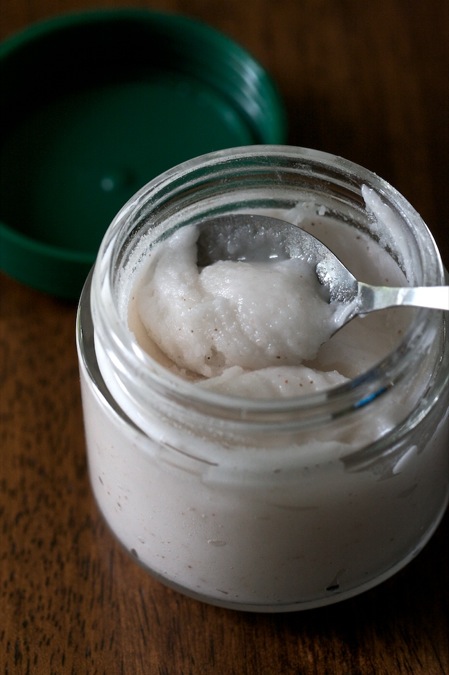Unveiling the Mystery Behind Itchiness: A Recent Discovery Sheds Light
Scientists from Harvard Medical School found out why some people get really itchy skin. Lots of folks, about 31.6 million in the U.S., have a skin thing called eczema. It usually starts when they’re kids, and sometimes it’s hard for doctors to figure out.
Eczema makes your skin itchy, and for many people, it’s the worst part. Lots of adults say their itching is really bad, even when they try medicine. Some worry about using medicine for a long time, and others say it doesn’t help them much.
Eczema can come in different types and can be mild or really bad. Sometimes, people have bad times where their skin gets much worse, and they might need to go to the hospital for help.
Kids are more likely to have eczema, but adults can get it too. It’s not easy to tell if someone has it because it looks different on everyone. Some folks get a diagnosis quickly, but for others, it can take a long time.
Even though eczema can be tough, scientists are learning more about it. They did a study with animals and found out what makes the itchiness happen. Understanding eczema better can help doctors find better ways to help people who have it.
New Discovery: What Might Stop Eczema Itching
Scientists looked into how tiny creatures called microbes could be causing the itchy feeling in people with eczema. They found that a germ called Staphylococcus aureus (S. aureus) might be the culprit behind the itchiness. Even though S. aureus normally lives on our skin, it can make some people’s skin really itchy, especially if they have eczema.
To figure this out, the researchers tested the skin of 13 people with eczema and 14 people without it. They then exposed mice to S. aureus from these skin samples. The mice got really itchy and scratched their skin a lot, which ended up causing damage. After some tests, the researchers discovered that an enzyme called V8 protease, released by S. aureus, was making the itchiness worse by messing with the nerves in the skin.
The researchers also noticed that most people with eczema had more S. aureus on their skin compared to those without eczema. They found that the balance of microbes on the skin of people with eczema was different, which allowed S. aureus to grow more.
To try and stop the itchiness, the researchers thought of using a medicine that’s already approved by the FDA for treating blood clots. This medicine can block the same receptor on skin nerves that S. aureus activates to cause itching. The next step for the researchers is to test this medicine in a cream that can be put on the skin.
Eczema and Other Health Problems: What You Should Know
Eczema is a skin condition that can cause redness, itching, and inflammation. While the exact cause of eczema isn’t clear, scientists think that an overactive immune system might play a big role. This means that your body’s defense system might be working too hard, leading to skin problems.
Even though eczema itself isn’t an autoimmune disease, having it could mean you’re more likely to develop other autoimmune diseases. These are conditions where your immune system attacks your body’s own cells by mistake. Some examples of autoimmune diseases are lupus, rheumatoid arthritis, and Crohn’s disease. People with eczema have a higher chance of getting these diseases.
A recent study looked at data from lots of people with eczema over many years. It found that those with eczema were more likely to have multiple autoimmune diseases, especially ones that affect the skin, gut, and connective tissues.
Scientists also think that certain chemicals in the environment, like pesticides and pollutants, might make autoimmune diseases more likely. These chemicals can mess with your immune system and cause problems.
So, if you have eczema, it’s essential to keep an eye on your overall health and talk to your doctor if you have any concerns.
Healing Eczema with Healthy Eating
Research data have uncovered a significant connection between diet and atopic dermatitis, offering promising avenues for natural alternatives in treating the condition. In a recent 2022 poster presentation at the Revolutionizing Atopic Dermatitis Conference, researchers delved into the outcomes of seven studies focusing on docosahexaenoic acid (DHA) and eicosatetraenoic acid (EPA) as potential treatments for atopic dermatitis. These omega-3 fatty acids are renowned for their anti-inflammatory properties and have been extensively studied for their health benefits.
The findings from these studies revealed that while omega-3 supplementation did not necessarily prevent allergic symptoms, it did exhibit a notable decrease in skin inflammation and the prevalence of atopic dermatitis within the study populations. This significant observation underscores the potential of omega-3 fatty acids in managing the condition, as highlighted in the subsequent publication of the poster presentation in the esteemed British Journal of Dermatology.
Moreover, omega-3 fatty acids encompass metabolites such as resolvins, which have demonstrated potent anti-inflammatory effects, particularly in allergic and inflammatory diseases. A notable 2015 study explored the administration of omega-3 and omega-6 fatty acids in preventing atopic dermatitis, with a focus on long-chain omega-3 fatty acids showing promise in this regard.
The efficacy of omega-3 fatty acids in addressing atopic dermatitis could be attributed to the prevalent dietary imbalance typically observed in Western diets. Omega-3 fats play crucial roles in various bodily functions, including cell division, receptor function, cognitive processes, and heart health. However, maintaining a balanced omega-6 to omega-3 ratio, as advocated by James J DiNicolantonio, PharmD., in a 2016 editorial, is imperative for optimal health outcomes.
In essence, the potential benefits of omega-3 supplementation in managing atopic dermatitis underscore the importance of addressing dietary imbalances and incorporating key nutrients essential for skin health. By embracing dietary modifications that prioritize omega-3 fatty acids, individuals may alleviate symptoms associated with atopic dermatitis and enhance overall well-being.
Home Remedies and Techniques for Easing Eczema
Many individuals may not need to rely on medications to alleviate symptoms and enhance their well-being. Besides incorporating omega-3 fatty acids into your diet to address eczema internally, there are numerous home-based approaches with minimal side effects that can greatly alleviate symptoms.
As per the American Academy of Dermatology, treatments for dermatological conditions may involve various options such as corticosteroid creams, Pimecrolimus cream, tacrolimus ointment, Crisaborole ointment, or Ruxolitinib cream. Additionally, your dermatologist might recommend systemic biologic medications.
Changes in weather can trigger flare-ups of eczema for some individuals, particularly when the temperature drops. To manage this, the National Eczema Society recommends maintaining a consistent temperature in your home and dressing in lightweight, layered clothing that can be adjusted as needed. Using a humidifier during colder months can also help increase moisture levels in your home, potentially reducing the likelihood of eczema symptoms worsening.
Research from six randomized controlled trials, involving 241 individuals with atopic dermatitis, indicates that probiotics can have a positive impact. While the use of probiotics led to significant improvements in the SCORing Atopic Dermatitis (SCORAD) measure among adults, it did not show a notable enhancement in skin itch or severity.
Aloe vera gel, known for its antibacterial properties and ability to promote wound healing, is often used to hydrate the skin. In a 2020 study, researchers evaluated a combination product of aloe vera gel and virgin olive oil, comparing it to the use of a common systemic corticosteroid, betamethasone, over six weeks. The results showed that the combination product outperformed betamethasone in treating eczema, as evidenced by improvements in disease severity, quality of life, and eosinophil count.
In a study conducted in 2020, the effectiveness of colloidal oatmeal cream for hand eczema was assessed. The findings indicated that colloidal oatmeal, known for its natural barrier protection, moisturizing, anti-inflammatory, and soothing properties, could alleviate symptoms of eczema severity in patients with chronic irritant hand eczema.
In a study from 2019, the anti-inflammatory properties of virgin coconut oil (VCO) were demonstrated. The research showed that VCO could reduce inflammatory markers and enhance skin barrier function, providing protection to the skin. This study is the first to report on the anti-inflammatory and skin-protective benefits of VCO observed in vitro.
Managing stress is important as it’s linked to making atopic dermatitis worse. Finding ways to handle stress, like yoga, meditation, writing in a journal, gentle exercise, or Emotional Freedom Techniques (EFT), can be helpful for managing your eczema.
Witch hazel is known for its various medicinal uses, such as reducing inflammation, tightening the skin, moisturizing, and fighting microbes. These properties make it helpful for easing itching and managing oozing eczema symptoms.
Rose geranium essential oil has been identified as a promising source of new and safe anti-inflammatory treatments. Research has shown that it exhibits potent anti-inflammatory activity, comparable to diclofenac, as demonstrated by histological analysis of inflammatory inhibition.
Lavender oil has been noted for its anti-inflammatory and antinociceptive (pain-relieving) properties. Studies have shown its effectiveness in treating dermatitis and eczema, with results comparable to the corticosteroid dexamethasone in animal models.
https://nationaleczema.org/eczema/#h-what-are-the-causes-of-eczema
https://aacijournal.biomedcentral.com/articles/10.1186/s13223-021-00597-4
https://www.ncbi.nlm.nih.gov/pmc/articles/PMC8451742/
https://www.ncbi.nlm.nih.gov/pmc/articles/PMC8325494/
https://www.dermatologytimes.com/view/effects-of-omega-3-fatty-acid-supplementation-on-atopic-dermatitis
https://academic.oup.com/bjd/article-abstract/188/Supplement_2/ljac140.015/6997938
https://www.ncbi.nlm.nih.gov/pmc/articles/PMC7892455/
https://onlinelibrary.wiley.com/doi/full/10.1111/ddg.12780
https://openheart.bmj.com/content/3/2/e000385
https://www.aad.org/public/diseases/eczema/types/atopic-dermatitis/treatment
https://eczema.org/information-and-advice/triggers-for-eczema/weather-and-eczema/
https://www.ncbi.nlm.nih.gov/pmc/articles/PMC9386980/
https://www.ncbi.nlm.nih.gov/pmc/articles/PMC7540232
https://www.ncbi.nlm.nih.gov/pmc/articles/PMC7103792/
https://www.ncbi.nlm.nih.gov/pmc/articles/PMC6335493






